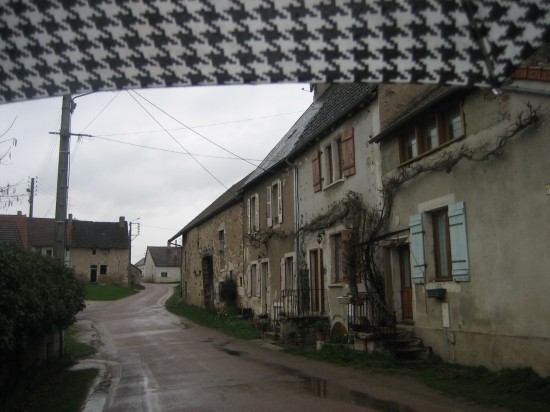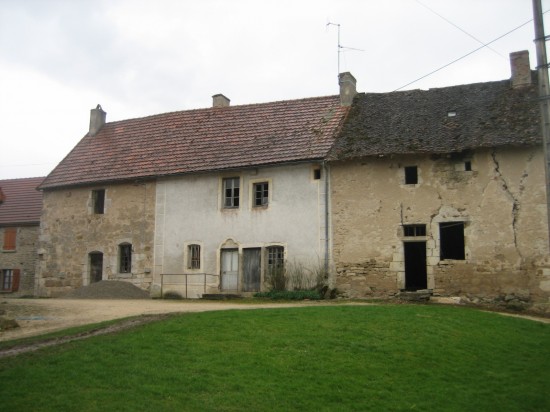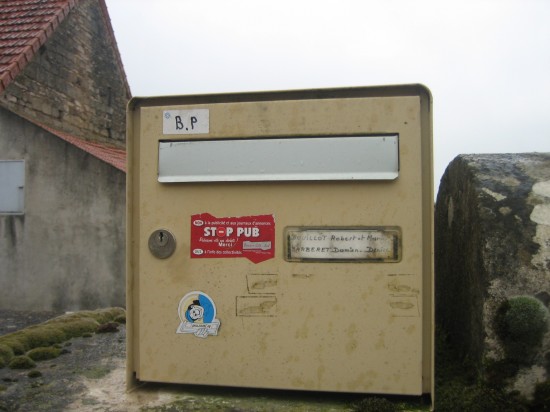by Jude Rogers
3. Distant Lines
This week, London weather didn’t make walking welcoming. I’ve no time for tramping city streets in wild rain and icy hail. Nor am I keen on wind whipping my umbrella inside out, exposing its skinny silver limbs to stuff it’s meant to keep away. I think walking should only be done when it’s a pleasure, not a chore, like many things – when it’s a nice way to spend five minutes, fifty or five hundred.
So away from London I went, with my boyfriend’s family, on holiday, hoping that such opportunities would present themselves nicely. In Molinot, a tiny, old village in the guts of rural France, life is very different to downtown Hackney. Unusually, however, the weather is similar. But being abroad, this doesn’t seem so bad. The murky skies and cold winds present themselves as exotic challenges, rather than obstacles.
So late one afternoon, after a trip to a nearby town, the light outside starts to brighten, and the rain slows to a crawl. Brother and sister are cooking in the kitchen, and everyone else is nodding off in a book. My feet are itchy. Coat on, brolly up, a quick tour of the commune.
1. I first came to Molinot in 2004, when we first got together. I was last here in 2006, just after Christmas in Wales, and a magical day travelling from Swansea to Paddington to St Pancras to Dijon, to Geoff’s car for an hour through the Cote D’Or. Time has passed, and the village takes time to form shape in my mind – the buildings painted like watercolours slowly taking on structures, the green hills coming to life from my memory.
I close the front door and turn right, towards the row of three houses that sit up the lane. I always liked them before, sitting there peacefully like devoted brothers. Now I notice how empty they are, how the window frames sit in their squares without glass. I wonder if people see similar houses in Britain, and see character and comfort, rather than the past pulling apart at the seams.
2. It is quiet here. No traffic purrs or growls around the lanes. Only the occasional cow lows, or a dog barks, each protecting a corner of their little worlds.
Round the corner, rain starts to patter on a postbox. I love spotting tiny signs of life like this when everything is still. I start to thinking about the Bouillots and the Barbarets popping out in the morning, looking at the pale yellow stickered with red and blue, turning their key, and seeing what might have arrived to disturb their day.
3. A set of gates reach out towards me like a ghost from a children’s story, protected from the weather by dark, green trees. The road turns off near them. It takes me past mint-green bags of hay, mounds of wet wood, a broken bench sheltering a saucepan from the showers.
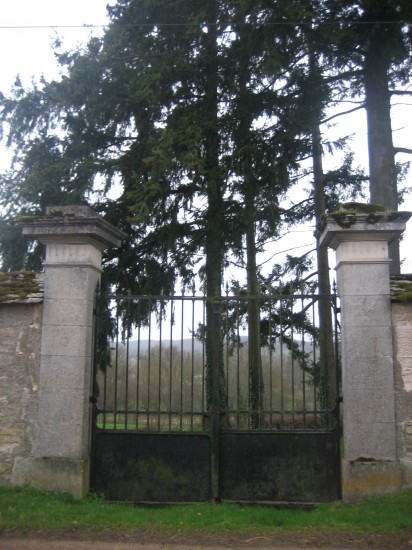
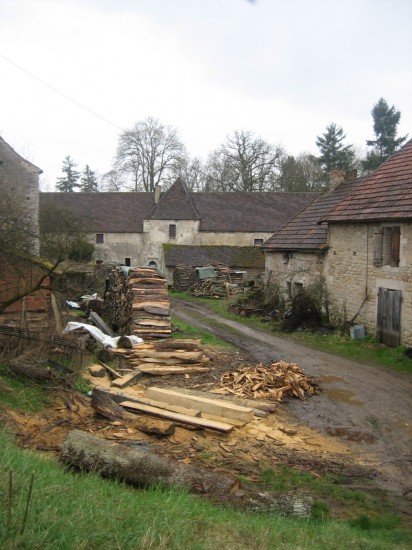
By the farm, a corrugated barn stands out of the clouds. I remember walking here years ago, holding Dan’s hand, the sun beaming down as our fingers tightened together. Now I am alone with the smell of wet earth, the water running down the tarmac, leaving him for an hour to remind me where we have been.
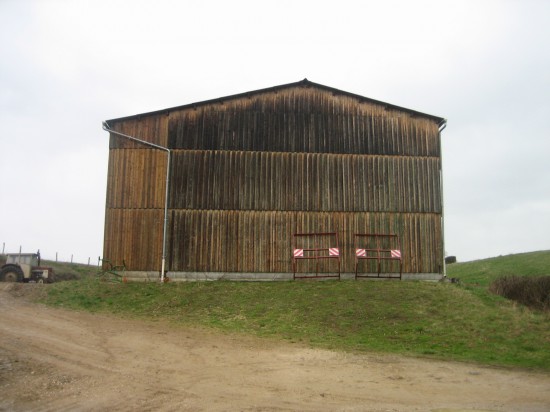
4. I walk past the first of many crucifixes on the side of the road, scoring the damp grass with the reminder of God. The rain quickens, I give in, and put up my umbrella.
Up the hill, the gate to the cemetery is faded, perfunctory, a rubbish bin shrugging outside. I try the gate, and it opens.
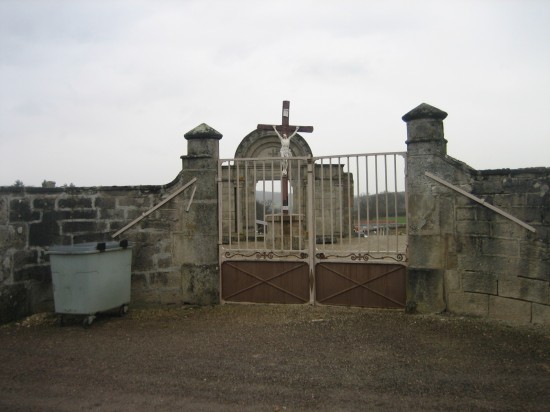
French graves are very different to ours. The verses on the stones express gentle “Regrets”. Individual tributes line up on the marble, from spouses, cousins and close friends. Each is illustrated with a different image – a cross, a dried rose, a brass etching of a woman’s face in a cloak, streaked softly with rain. These are the stories of people I have never seen, and will never see. To be among them feels comforting, as if we are forcing ourselves together.
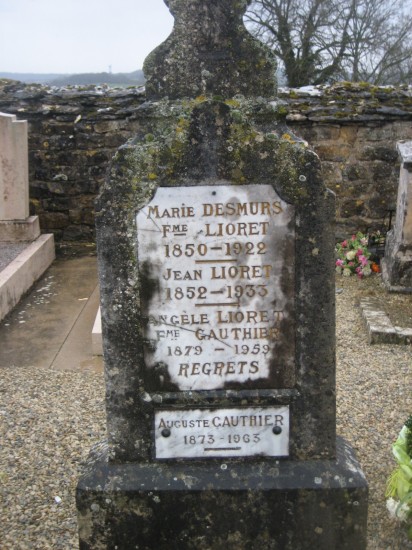
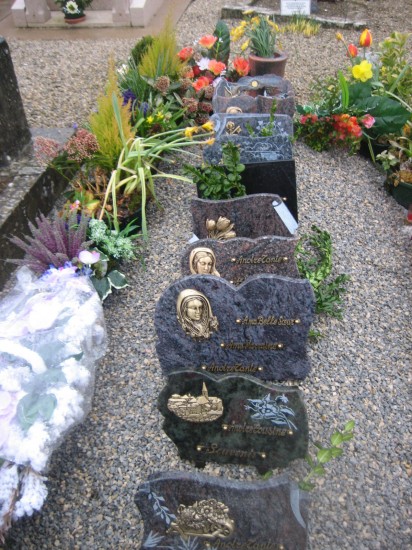
Before I leave, I see a small girl to the left of the gate, with a large head and tiny body, praying on her knees. She remembers Germaine Bretin, aged 4, in 1908, and Jacqueline Thomas, aged 7, in 1935. “Our darling angels pray for us”, reads the inscription, and I wonder why this is marking two deaths a generation apart.
As I pull the gate towards me, I notice the girl is smiling.
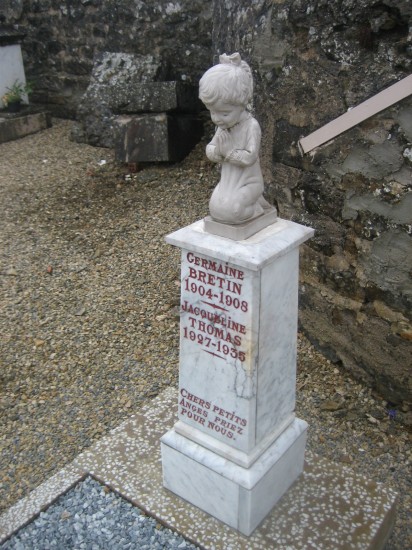
5. The rain falls harder, cooling my face and my neck. I watch a damp tabby cat try to leap from one balcony to another, before seeing me, freezing, and following my gaze. We part when I turn the corner. I see blue buckets full of green bottles, frames of old swings, a white plastic seesaw covered with dust getting caught by the wind, rocking, rocking, rocking.
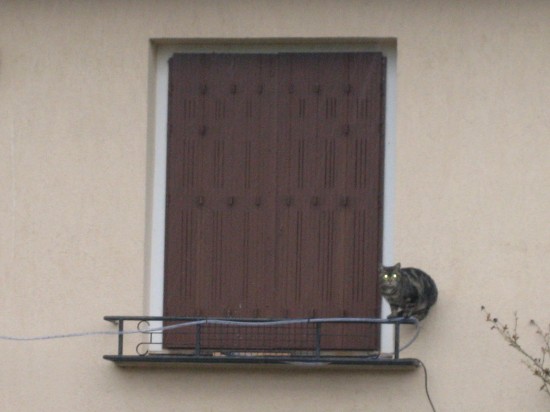
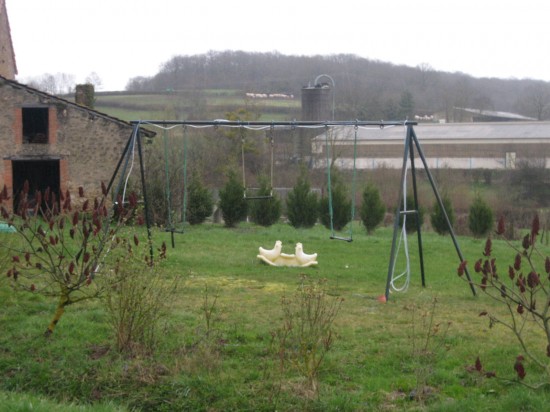
The hill dips towards home. I pass two Charolets in a barn, a mother and daughter, sheltering from the elements, not letting me go. Opposite them, an old water tank going orange with age, its old struts like tiny arms, a little lost Dalek. On the horizon, grey and smoky with thunderclouds, two electricity pylons peer over us, one like a tiny owl, one like Optimus Prime. I feel myself smiling, holding my umbrella tight in my hand, and turn for the last time.
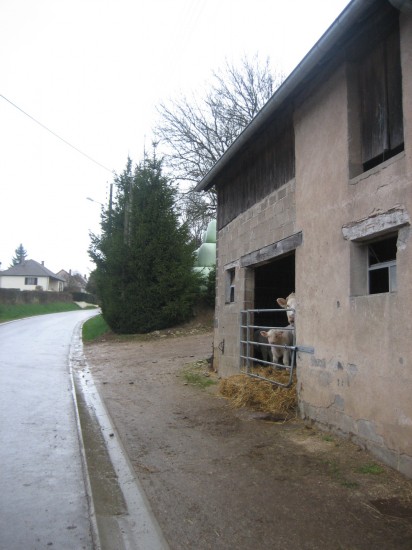
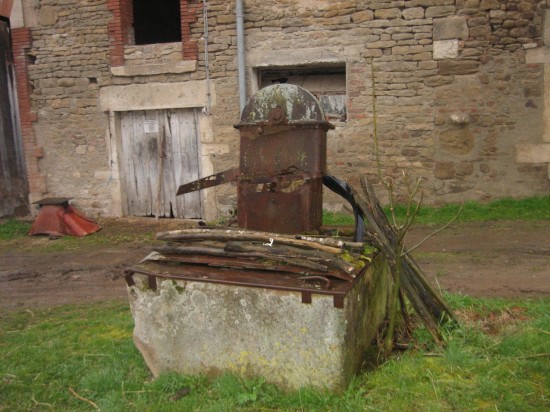
6. The café that has never opened for us in the years we have come here marks the last leg. Inside, the walls darken with the weather, but I still long to see them. Maybe one day.
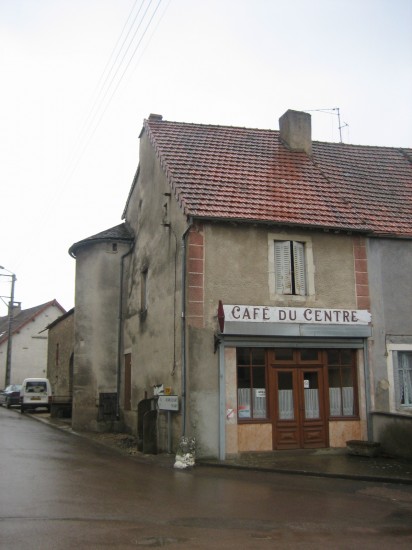
I look at the black and white of my umbrella, see the front door that I know so well, and see the shape of my boy taking form through the window. He waves, I wave back, and I go back to my world.
